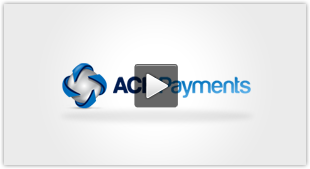Automated Clearing House (ACH) web payment providers are pivotal in enabling electronic financial transactions between banks and financial institutions. These third-party services facilitate the direct transfer of funds from customers’ bank accounts to merchants or service providers, thereby streamlining the payment process. Through the use of ACH payments, transactions are processed in batches, which makes it both cost-effective for businesses and convenient for consumers.

The role of ACH payment providers extends beyond mere transaction facilitation. They also ensure compliance with the regulations set by the National Automated Clearing House Association (NACHA), which governs ACH network transactions. Additionally, they provide businesses with tools for fraud detection, risk management, and security protocols, safeguarding the interests of both the transaction parties.
As more businesses pivot towards digital solutions, the significance of ACH web payment providers has surged. Their ability to integrate with various business platforms and accounting software has further cemented their position as a cornerstone of financial technology. The providers offer flexible transaction models catering to diverse business needs, whether for one-time payments or recurring billing.
Understanding ACH Web Payment Processing

ACH Web Payment Processing leverages the Automated Clearing House (ACH) network to handle payments efficiently and securely. This process enables both one-time and recurring payments.
The Basics of ACH and How It Works
The Automated Clearing House (ACH) is an electronic network used for financial transactions in the United States. ACH transactions involve the transfer of funds between bank accounts through a central clearing facility. Payments made through the ACH network are settled in batches, which are processed at specific intervals throughout the day. ACH payments are a popular method for businesses to collect funds due to their cost-effectiveness and ability to handle both one-time and recurring payments.
- Initiation: The payer authorizes an ACH debit or credit transaction.
- Submission: The Originating Depository Financial Institution (ODFI) submits the transaction to the ACH network.
- Settlement: The ACH network processes the batch of transactions and facilitates the fund transfer between the ODFI and Receiving Depository Financial Institution (RDFI).
Advantages of Accepting ACH Payments for Businesses
Businesses benefit from accepting ACH payments in numerous ways. This includes lower transaction fees compared to credit card processing, making it cost-effective for payment processing. ACH processing fees are typically a fixed amount, unlike the percentage-based fees associated with credit cards. Additionally, ACH enables businesses to offer more payment options to customers, which can lead to improved customer satisfaction and retention.
- Lower processing fees: Cost-efficient for large volume transactions.
- Non-card payment option: Attractive to customers who prefer bank transfers.
- Enhanced cash flow: ACH transfers often have faster processing times than checks.
ACH Processing Fees and Pricing Models
ACH processing services come with various fee structures. It’s common for providers to charge a flat transaction fee per ACH payment or offer a monthly fee that covers a certain volume of transactions.
- Flat fee per transaction: Typically ranges from $0.20 to $1.50.
- Monthly fee: Can include a set number of transactions with additional fees for exceeding limits.
Compliance and Security in ACH Transactions
Compliance and security are critical in ACH transactions, enforced by the National Automated Clearing House Association (NACHA) regulations. Providers must adhere to strict standards to protect the integrity of the ACH network and secure sensitive financial data.
- NACHA Rules: Require adherence to operational guidelines.
- Security Standards: Implement safeguards such as encryption and access controls.
Selecting the Right ACH Payment Provider

When choosing an ACH payment provider, businesses should prioritize features, integration capabilities, and tailor their choice to their size and risk level. Identifying the right partner for handling ACH transactions will significantly influence your operational efficiency and payment experience offered to customers.
Comparing Features and Support Offered by Providers
Providers such as Stripe and Square offer comprehensive services including ACH payment processing, credit card processing, and recurring billing. It’s crucial to compare the features available: look for account validation, fraud prevention mechanisms, and diversified payment gateway integrations. Customer support is another vital element; platforms like QuickBooks and Helcim are recognized for excellent customer service. Reviewing and comparing these features across providers like Stax and Dharma Merchant Services helps determine which match your specific business needs.
| Provider | Account Validation | Fraud Prevention | Customer Support |
|---|---|---|---|
| Stripe | Available | Advanced | 24/7 |
| QuickBooks | Available | Standard | Business hours |
| Helcim | Available | Advanced | Extended hours |
| Square | Limited | Standard | 24/7 |
Integration with Accounting and Business Software
Seamless integration with existing accounting software and business systems is essential. QuickBooks Online offers built-in ACH processing, which syncs directly with your financial records. Stripe’s and Square’s APIs allow tight integration with various third-party applications and systems, including POS systems and invoicing tools. Ensure that the chosen provider’s APIs are robust and well-documented to avoid future integration challenges.
- Stripe: Rich API, compatible with many POS terminals and software.
- QuickBooks: Direct integration with financial records and cash flow management.
- Helcim: Integrates with diverse merchant accounts and accounting platforms.
- Square: Multiple integrations including Square Invoices and Clover POS.
Considerations for Small Businesses and High-Risk Merchants
Small businesses may benefit from providers like Square, which offers a flat rate pricing model and easy setup without the need for a separate merchant account. High-risk businesses may find more suitable partners in companies like PaymentCloud, which specializes in high-risk merchant accounts. Evaluate transaction volume, pricing transparency, and the ability to handle international payments.
- Square offers transparent pricing and a simple POS system for small businesses.
- PaymentCloud caters to high-risk merchants, providing dedicated support and solutions.
- National Processing and Dharma specialize in competitive rates for mid-sized businesses.
- Wise (formerly TransferWise) enables affordable international bank transfers.
Businesses should ensure their chosen provider is capable of processing both electronic payments and direct deposits efficiently. Providers like PayPal and Authorize.Net have built a strong reputation in the payments industry, and evaluating their offerings in relation to your company’s needs is critical for success.








